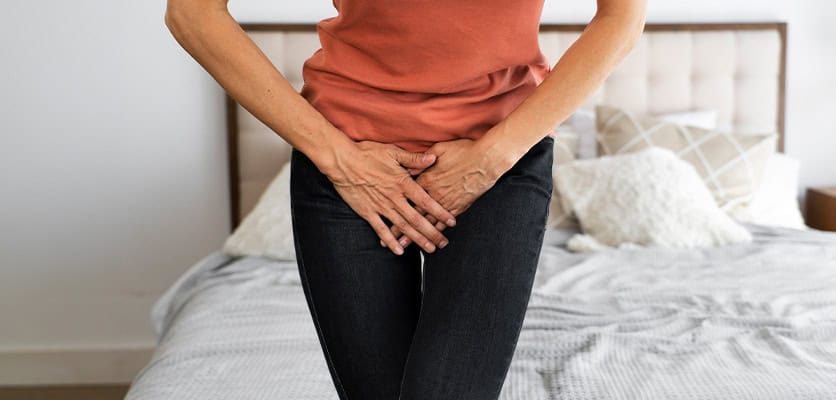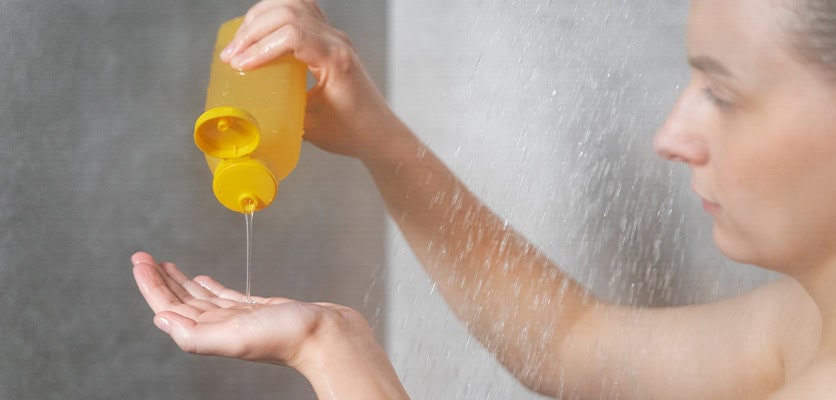14 July 2024
•3 minute read
Don’t Self-Treat Itchiness in Your Private Parts
Have you ever found yourself silently battling an itch that seems too uncomfortable to discuss openly? Vaginal itching, a common yet hushed topic, often leaves many women navigating this discomfort silently. While this issue may not be openly discussed, its impact on daily life and overall well-being cannot be underestimated.
Before getting into the causes and management of vaginal itchiness, it is worth going over the commonly misunderstood terminology. A lot of women would say vagina, but what they mean is vulva. The vulva is the external part of the genitals that is on the outside part of the body such as the labia, clitoris, urethra, and vaginal opening. On the other hand, vagina is the internal part of the genitals.
Are itchy vaginas normal?

Occasional vaginal itching can be normal and may result from benign factors like irritation due to certain hygiene or scented feminine products, or mild infections. However, persistent or severe itching could indicate more serious issues, such as yeast infection and sexually transmitted infections (STIs) that might require assessment by a gynecologist.
Beyond the misconception
A very common misconception is the assumption that all vaginal itchiness is caused by yeast infections. In actuality, many other causes can be attributed to itchiness. It is vital to avoid self-diagnosis and over-the-counter treatments without professional advice.

Causes may include:
- Yeast infections
- Bacterial infections such as bacterial vaginosis
- Irritants: Soap, shampoo, bubble baths, and personal hygiene products like scented sanitary pads and tampons
- Hormonal changes, especially during menopause (atrophic vaginitis) or pregnancy
- STIs: Trichomoniasis, genital herpes, genital warts, chlamydia and gonorrhea
- Allergies like spermicidal lubricant condoms
- Lichen sclerosus
– A condition that causes patchy, discolored, thin skin and usually affects the genitals. - Psoriasis
– An autoimmune condition that causes inflammation of the skin. Symptoms of psoriasis include thick areas of discolored skin covered with scales. These thick, scaly areas are called plaques. - Vulval intraepithelial neoplasia
– This happens when abnormal cells develop in the top layer of skin covering the vulva. It is not vulval cancer but could turn into cancer after some years.
Do not delay: Signs that require prompt medical attention
- Presence of sores, bumps or blisters
- Abnormal vaginal bleeding
- Changes in vulva appearance or texture
- Severe pain or burning sensation in the vaginal area
- Fever accompanied by vaginal symptoms
- Unusual vaginal discharge
– While vaginal discharge is common, variations in color, consistency, or odor may indicate an underlying issue. Pay attention if the discharge appears abnormal, particularly if accompanied by a foul odor.
The emotional and psychological toll of persistent vaginal itching
Persistent vaginal itching can take a significant emotional and psychological toll on individuals affected by this condition. The incessant discomfort and irritation can lead to various mental disturbances, including heightened levels of stress, anxiety, and even depression. Additionally, the persistent itching may result in a reduction in sexual satisfaction, potentially impacting intimate relationships.
Individuals experiencing vaginal itching may also struggle with their self-esteem, as the condition can contribute to feelings of embarrassment, frustration, and social withdrawal. This may ultimately lead to a sense of isolation and negatively impact one’s self-image.
Addressing both the physical and emotional aspects of vaginal itching is important for a comprehensive approach to a woman’s well-being. Seeking support from healthcare professionals and maintaining open communication can help alleviate these emotional impacts.
Tips for maintaining proper vaginal hygiene

1. Food intake
- To maintain the most optimal vulval and vaginal health, a diet rich in antioxidants, vitamin E, vitamin C, omega-3 fatty acids, omega-6 fatty acids, protein, and probiotics is recommended.
- Consume probiotic-rich foods or supplements to promote a healthy balance of vaginal flora.
2. Cleaning tips
- After using the bathroom, remember to wipe the anus and vagina separately. For instance, wipe one area, discard the used paper, then wipe the other area. When urinating, always wipe from front to back.
- Limit washing the vulva to twice a day since too much washing can worsen the itchiness symptoms.
- Consider showering rather than bathing, and avoid using antiseptics.
- Refrain from using sponges or flannels to wash the vulva as they can irritate the skin.
- After cleaning the vagina, gently pat the area dry with a soft towel or use a hairdryer on a cool setting held at a distance from the skin.
3. Say no to douching and steaming
- Douching involves the rinsing of the vaginal canal with a water-soap or water-vinegar mixture.
- The vagina is self-cleaning. With that being said, please do not douche as it can disrupt the vagina’s natural microbiome. A mild, fragrance-free soap with water would be enough to clean the vulva.
- Vaginal steaming poses a similar risk, potentially altering the vagina’s natural microbiome and defenses. Moreover, there is concern regarding the possibility of burning the vaginal tissues and vulvar skin.
4. Smart clothing choices
- Change clothes and underwear after working out. Do not wear damp swimsuits or workout clothes all day.
- During menses, avoid scented tampons, pads, and liners. Ensure to change the pad or tampon four to five times a day, irrespective of whether it is fully soaked or not.
- Opt for loose-fitting cotton underwear instead of synthetic, silk, polyester, or dyed options. White or light-coloured underwear is recommended as dark textile dyes can trigger allergies.
- Refrain from wearing tight clothes such as tights, leggings, tight jeans, and cycling shorts. Consider opting for loose-fitting clothes at home, preferably without wearing underwear. Sleeping without underwear on may also be more comfortable.
- Minimize using fabric conditioners and biological washing powders for clothing care.

5. Ensure safe sexual practices
- Using condoms during sexual activity can help to prevent STIs and vaginal infections.
- Opt out from using spermicidal lubricant condoms and ensure adequate lubrication during sexual activity.
- After sexual intercourse, urinate to flush out any bacteria that may have entered the urethra, reducing the risk of urinary tract infections.
6. Protective role of pubic hair
- Pubic hair acts as a safety net that protects the vulva from bacterial infections. It shields and cushions the sensitive skin it covers, protecting it from friction during sexual activity. As long as it is regularly cleaned, pubic hair poses no health risk.
- Avoid shaving the pubic hair as it can cause razor burn, redness, itchiness when the hair grows back, and infection from ingrown hairs. Cuts and nicks can also introduce unwanted bacteria.
7. Gentle intimate care
- Minimize the use of soaps, shower gels, scrubs, bubble baths, deodorants, baby wipes, and douches as all of these may contain skin irritants. Instead, opt for simple emollients as substitutes and general moisturizers to prevent dryness and irritation.
- Be careful when using over-the-counter treatments. Some may aggravate allergies and prolong symptoms. For example, baby or nappy creams, herbal creams like tea tree oil and aloe vera, and thrush treatments.
- Do not use feminine hygiene products or wash, especially if they are said to be ‘pH-balancing’. The vulva does not require pH balancing, as the vagina naturally maintains its pH levels.
- Avoid wearing panty liners or sanitary pads regularly and do not use colored toilet paper.
This article first appeared in The Star, 17 July 2024.
Share:
Was this article helpful?
14 July 2024
•3 minute read
Don’t Self-Treat Itchiness in Your Private Parts
Learn more about Obstetrics And Gynecology in Columbia Asia
Learn MoreShare:
Was this article helpful?
Health Packages
Elevate your health with tailored health packages at Columbia Asia Hospital. Take charge of your health journey today.

